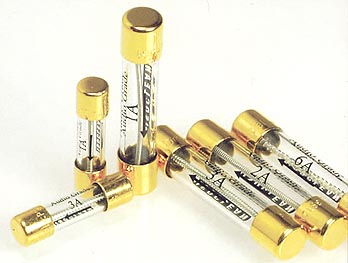Not to go off topic but I am not convinced that BT provides an accurate measure of differences in an audio system. As someone trained in biology I appreciate the scientific method but I also accept that the reductionist approach that it embodies is not valid for all issues.
Come on, Risabet. Guys are constantly saying they hear things like: "amazing increase in extension and air;" "deeper tighter lows;" "more extended and airy highs;" "more liquid mids;" "deeper wider soundstage;" etc. etc. They are describing mind-blowing upgrades in their system's sound from every tweak imaginable. They say they know their systems inside and out and can hear the slightest difference a tweak makes. But you throw a double blind test in there and they can't pick out A from B even half the time. And you are going to tell me it is because the test isn't an accurate method of measurement?
Either you can hear the effects of a tweak and can pick out the difference in sound or you can't. It is really that simple. If you can't, then it isn't likely the test that is invalid. To say that you can hear all of these changes that a tweak makes, but then that you can't pick it out from the control in a standardized test because the test is a faulty way of measuring such things . . . that just sounds like a copout to me.
All listening is affected by psychological factors, our moods and time of day plus many other things contribute to our state of mind which definitely effects the functioning of our senses, thus IMO psychological factors are quite real in their effects but not necessarily amenable to A/B testing validity.
Not buying it. Tests can easily be designed to control for these factors. By using several different test subjects and repeating the tests at random times, among other ways. Again, we are talking about improvements that people say are obvious and easy to hear. The often-used line: "My girlfriend noticed the improvement immediately and she knows nothing about audio," comes to mind. You are going to tell me that the sorts of improvements these guys are reporting are credible, but that time of day and mood, among other psychological factors, is going to invalidate A/B testing as a way to determine whether they really can hear a difference? Again, sounds like a copout.
Definitely not a place where the DBT is looked upon kindly, but the guys @ AA are IME credible, sensitive listeners who report what they hear. Though sometimes given to hyperbole, they are dedicated to getting the best sound from their gear as possible. There are many paths to the truth.
There are many paths to the truth, and everyone's truth is different. But I think in this hobby more than just about any other, hundreds and thousands of dollars are wasted all the time on tweaks that have no basis in science, are fueled by marketing and hyperbole, and result in no real improvement in sound, only perceived improvement based on the placebo effect. It is just like that study that came out recently that showed when people knew a wine cost more, that it tasted better to them.
Most of the time when we spend good money on a tweak, we convince ourselves that we hear improvements in sound, even when there is no real discernible improvement. These purchases are fueled by marketing hype from the companies and lemming-like behavior on the internet forums. You get a couple of dozen guys talking up a tweak on the forums, and suddenly it becomes a mass movement and everybody has to have that tweak or they feel like their system is not reaching its full potential. And the results of these tweaks are always mind-blowing, but never measurable.
Again I come back to the simple fact that either you hear a real difference in the sound, in which case you should be able to pick it out in an A/B test, or you don't hear a discernible difference, in which case you are wasting your money on the tweak in question. That is my truth.





